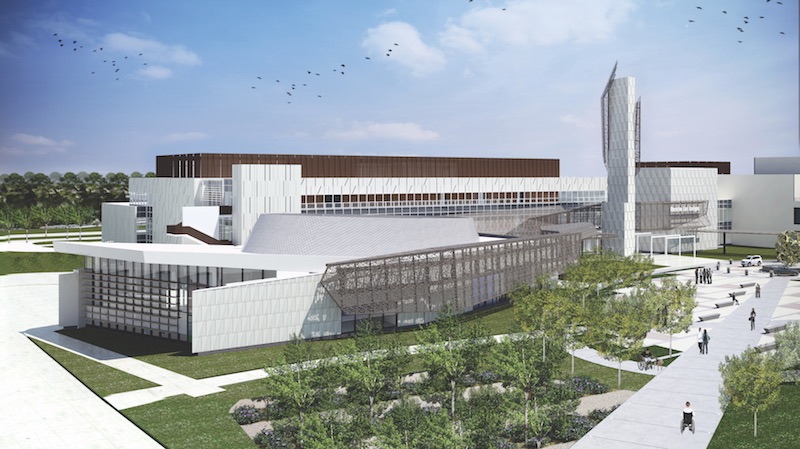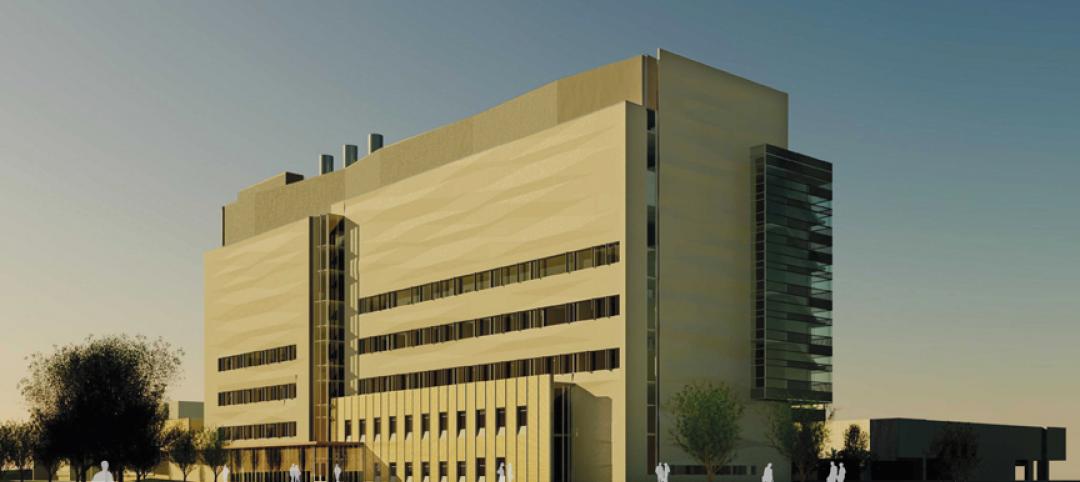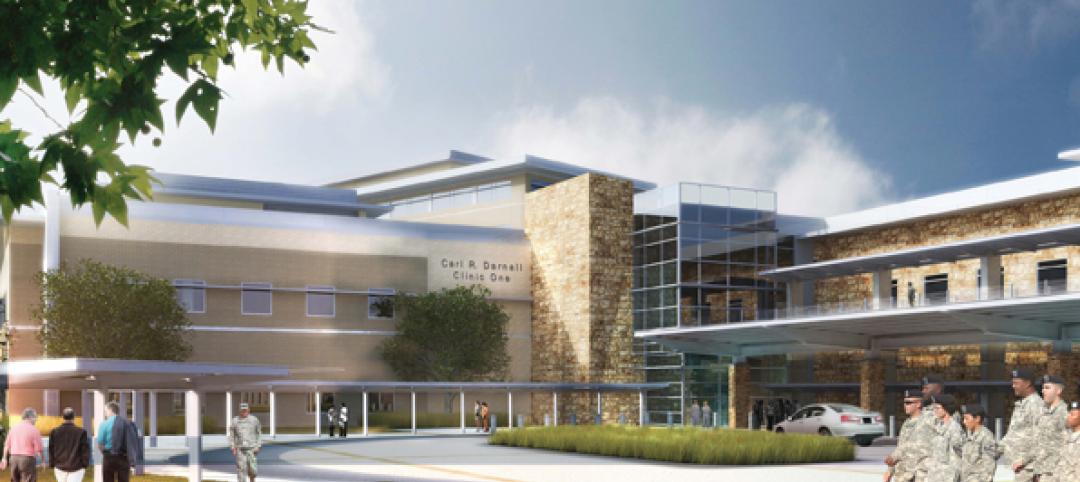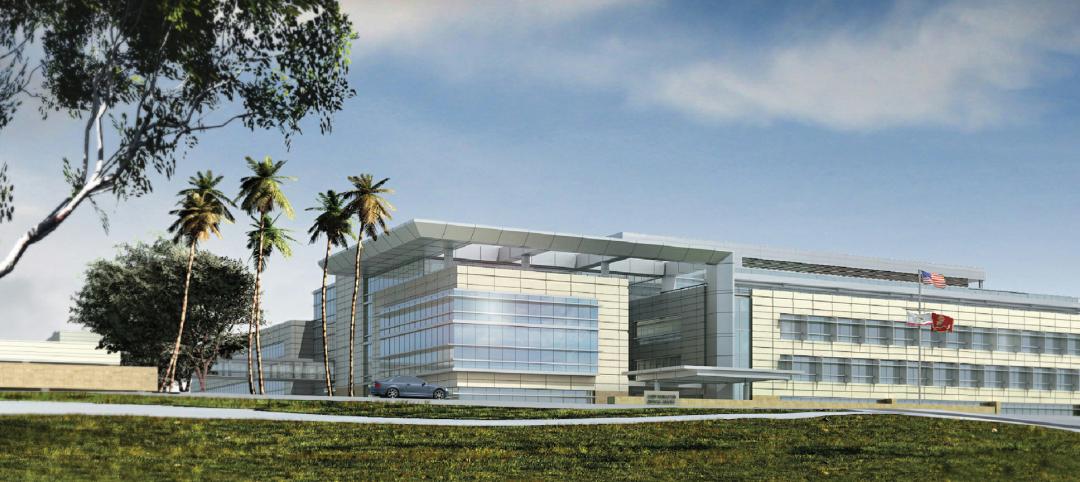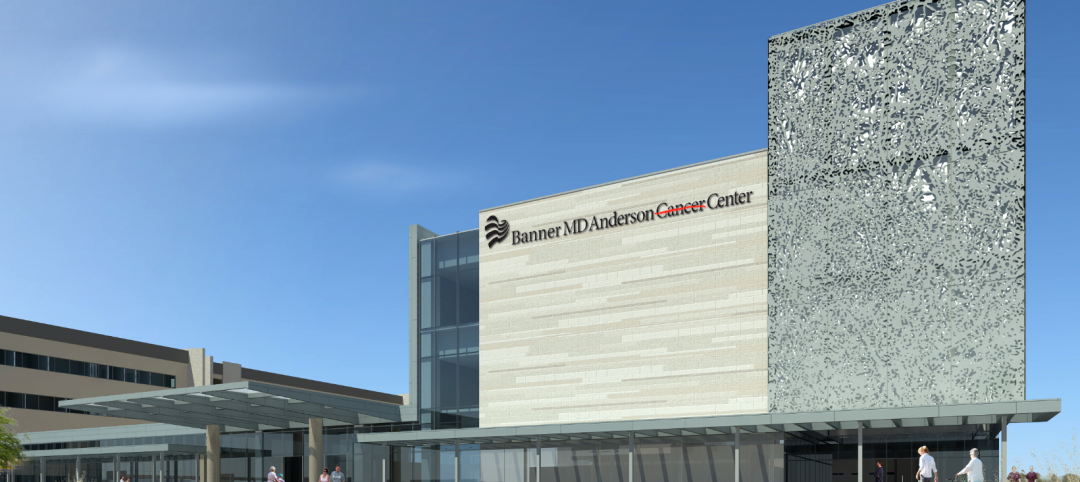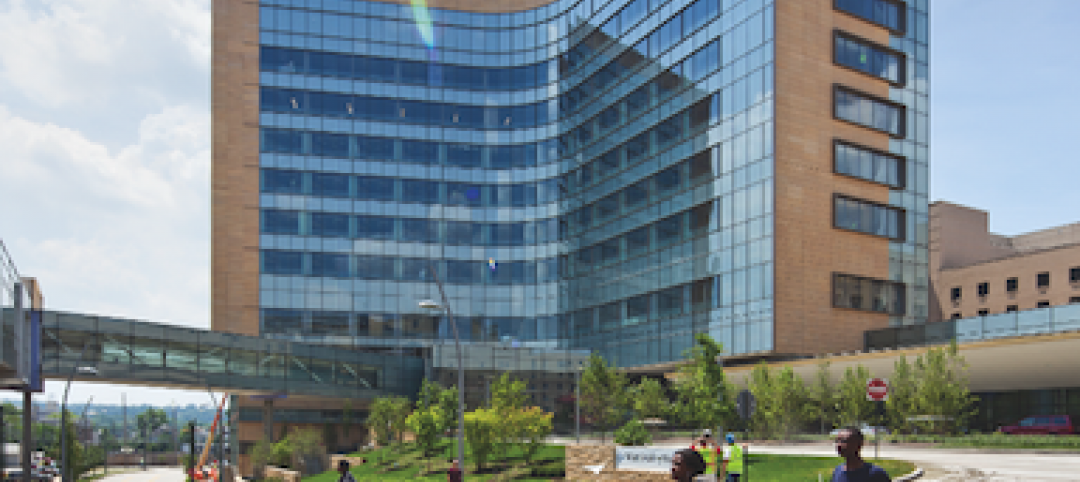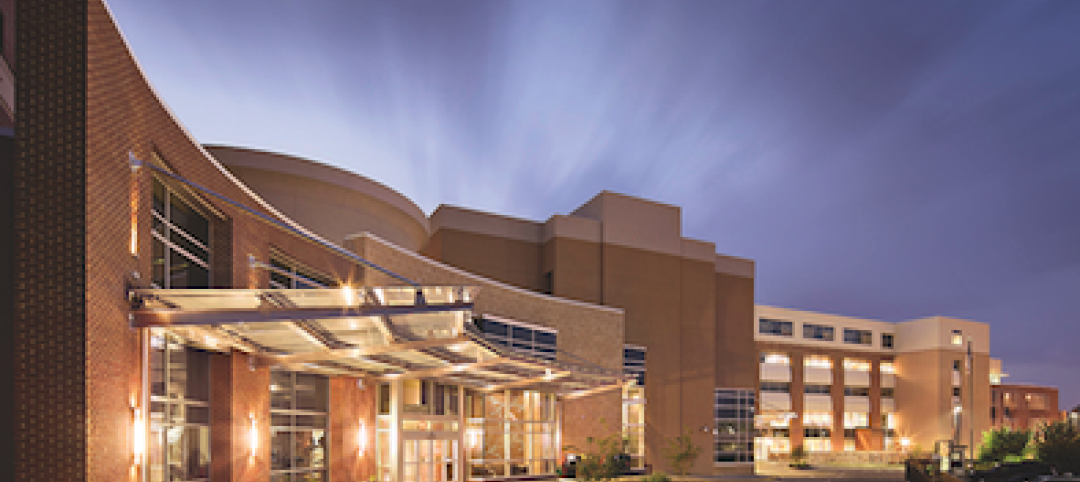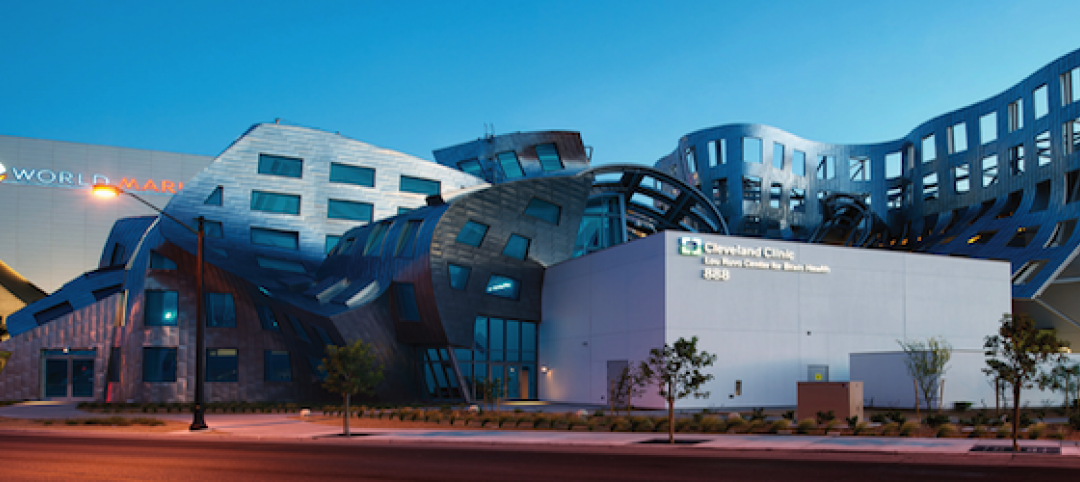The connection between the outdoors, health, and wellness has been gaining validity and acceptance within the design and medical communities. One of the fullest expressions of this nexus is occurring at Rancho Los Amigos National Rehabilitation Center, in Downey, Calif., the renowned recovery and rehab facility for patients with spinal cord and brain injuries, orthopedic disabilities, strokes, neurological disorders, and physical and developmental disorders.
The hospital’s ongoing $418 million revitalization and beautification, which is scheduled for completion in 2020, includes the renovation of its existing inpatient hospital, whose expansion will link it to a new outpatient building. A new wellness and aquatic therapy center already has opened, 15 months ahead of schedule.
But what makes this design-build project different will be the transformation of the facility’s entire campus into an outdoor recovery zone that encompasses a healing garden, therapy gardens, and terrain park.
Bonnie Khang-Keating, Principal and Vice President with SmithGroupJJR, the project’s lead designer, explains that the hospital—which is owned by Los Angeles County and has been in operation since 1888—has been serving the community from mostly older, modular buildings. By stacking those buildings vertically as part of the revitalization, and by adding a parking garage, SmithGroupJJR and Taylor Design, the project’s architect of record, gained considerable open space, which she estimates will account for 30–40% of the total campus.
Existing buildings and hardscape are being replaced with new dual-purpose outdoor spaces, healing gardens and terraces, and large plazas and amphitheaters that will also serve as physical therapy and terrain parks. “The hospital wants to hold events outside, like wheelchair basketball and Special Olympics,” says Khang-Keating.
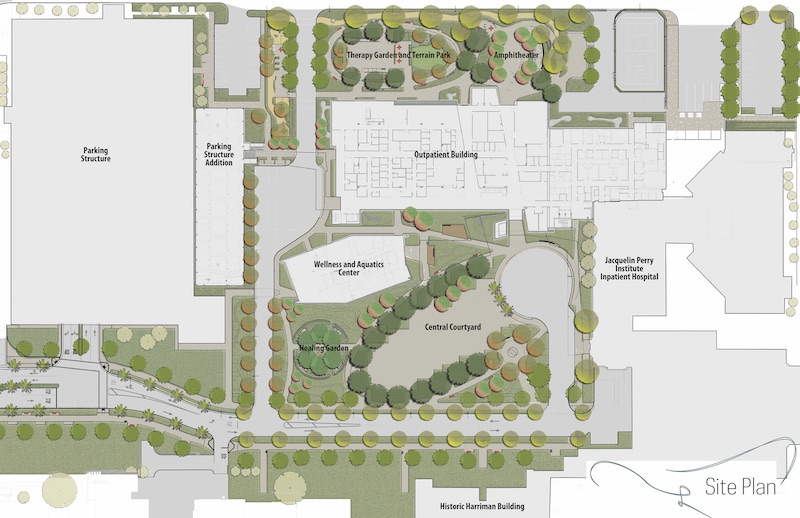 SmithGroupJJR and landscape architect KSA Design Studio's layout of the rehab center surrounds new and existing buildings with a variety of outdoor environments. Image: SmithGroupJJR.
SmithGroupJJR and landscape architect KSA Design Studio's layout of the rehab center surrounds new and existing buildings with a variety of outdoor environments. Image: SmithGroupJJR.
Taken together, the 29,170-sf therapy garden, the 8,400-sf horticultural garden, the 21,740-sf amphitheater, and the 8,790-sf sports court will account for 1.56 acres of open space on the hospital premises.
KSA Design Studio, the project’s landscape architect and a member of its design-build team, has focused on selecting the types of plants, ground cover, and other materials that would be used.
Khang-Keating notes that Rancho Los Amigos is unique among hospitals in that all of its outdoor-rehab activities are on the ground floor, which has the benefit of encouraging and expanding patients’ mobility. SmithGroupJJR programmed every foot of outdoor space with the expectation that it would be used every day, says Khang-Keating.
One of the goals of the design is to allow patients to learn to adapt to external conditions they will face once they’re discharged. Many former patients also return to the campus to mentor current patients.
Large sliding doors that line the entire wall of the outpatient therapy gyms further blur the boundary between indoor and outdoor space.
Because landscaping is usually the last thing that gets installed on a project, it can become an afterthought and get reduced or cut completely when budgets get tight.
But Khang-Keating says Rancho Los Amigos championed the indoor-outdoor concept right from the start. She says this is especially true of its CEO, Jorge Orozco, who started working at the hospital as a physical therapist in 1989.
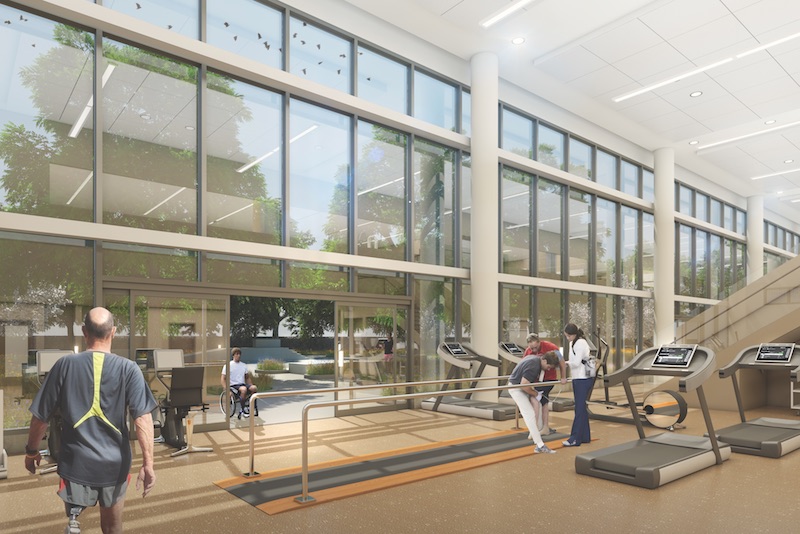 In the ground-floor gym (below), glass partitions blur the divide between indoors and outdoors. Image: SmithGroupJJR.
In the ground-floor gym (below), glass partitions blur the divide between indoors and outdoors. Image: SmithGroupJJR.
Related Stories
| Jan 21, 2011
Research center built for interdisciplinary cooperation
The Jan and Dan Duncan Neurological Research Institute at Texas Children’s Hospital, in Houston, the first basic research institute for childhood neurological diseases, is a 13-story twisting tower in the center of the hospital campus.
| Jan 19, 2011
Biomedical research center in Texas to foster scientific collaboration
The new Health and Biomedical Sciences Center at the University of Houston will facilitate interaction between scientists in a 167,000-sf, six-story research facility. The center will bring together researchers from many of the school’s departments to collaborate on interdisciplinary projects. The facility also will feature an ambulatory surgery center for the College of Optometry, the first of its kind for an optometry school. Boston-based firms Shepley Bulfinch and Bailey Architects designed the project.
| Jan 19, 2011
New Fort Hood hospital will replace aging medical center
The Army Corps of Engineers selected London-based Balfour Beatty and St. Louis-based McCarthy to provide design-build services for the Fort Hood Replacement Hospital in Texas, a $503 million, 944,000-sf complex partially funded by the American Recovery and Reinvestment Act. The firm plans to use BIM for the project, which will include outpatient clinics, an ambulance garage, a central utility plant, and three parking structures. Texas firms HKS Architects and Wingler & Sharp will participate as design partners. The project seeks LEED Gold.
| Jan 10, 2011
Michael J. Alter, president of The Alter Group: ‘There’s a significant pent-up demand for projects’
Michael J. Alter, president of The Alter Group, a national corporate real estate development firm headquartered in Skokie, Ill., on the growth of urban centers, project financing, and what clients are saying about sustainability.
| Dec 17, 2010
ARRA-funded Navy hospital aims for LEED Gold
The team of Clark/McCarthy, HKS Architects, and Wingler & Sharp are collaborating on the design of a new naval hospital at Camp Pendleton in Southern California. The $451 million project is the largest so far awarded by the U.S. Navy under the American Recovery and Reinvestment Act. The 500,000-sf, 67-bed hospital, to be located on a 70-acre site, will include facilities for emergency and primary care, specialty care clinics, surgery, and intensive care. The Building Team is targeting LEED Gold.
| Dec 17, 2010
Arizona outpatient cancer center to light a ‘lantern of hope’
Construction of the Banner MD Anderson Cancer Center in Gilbert, Ariz., is under way. Located on the Banner Gateway Medical Center campus near Phoenix, the three-story, 131,000-sf outpatient facility will house radiation oncology, outpatient imaging, multi-specialty clinics, infusion therapy, and various support services. Cannon Design incorporated a signature architectural feature called the “lantern of hope” for the $90 million facility.
| Oct 18, 2010
World’s first zero-carbon city on track in Abu Dhabi
Masdar City, the world’s only zero-carbon city, is on track to be built in Abu Dhabi, with completion expected as early as 2020. Foster + Partners developed the $22 billion city’s master plan, with Adrian Smith + Gordon Gill Architecture, Aedas, and Lava Architects designing buildings for the project’s first phase, which is on track to be ready for occupancy by 2015.
| Oct 13, 2010
Prefab Trailblazer
The $137 million, 12-story, 500,000-sf Miami Valley Hospital cardiac center, Dayton, Ohio, is the first major hospital project in the U.S. to have made extensive use of prefabricated components in its design and construction.
| Oct 13, 2010
Hospital tower gets modern makeover
The Wellmont Holston Valley Medical Center in Kingsport, Tenn., expanded its D unit, a project that includes a 243,443-sf addition with a 12-room operating suite, a 36-bed intensive care unit, and an enlarged emergency department.
| Oct 13, 2010
Hospital and clinic join for better patient care
Designed by HGA Architects and Engineers, the two-story Owatonna (Minn.) Hospital, owned by Allina Hospitals and Clinics, connects to a newly expanded clinic owned by Mayo Health System to create a single facility for inpatient and outpatient care.


